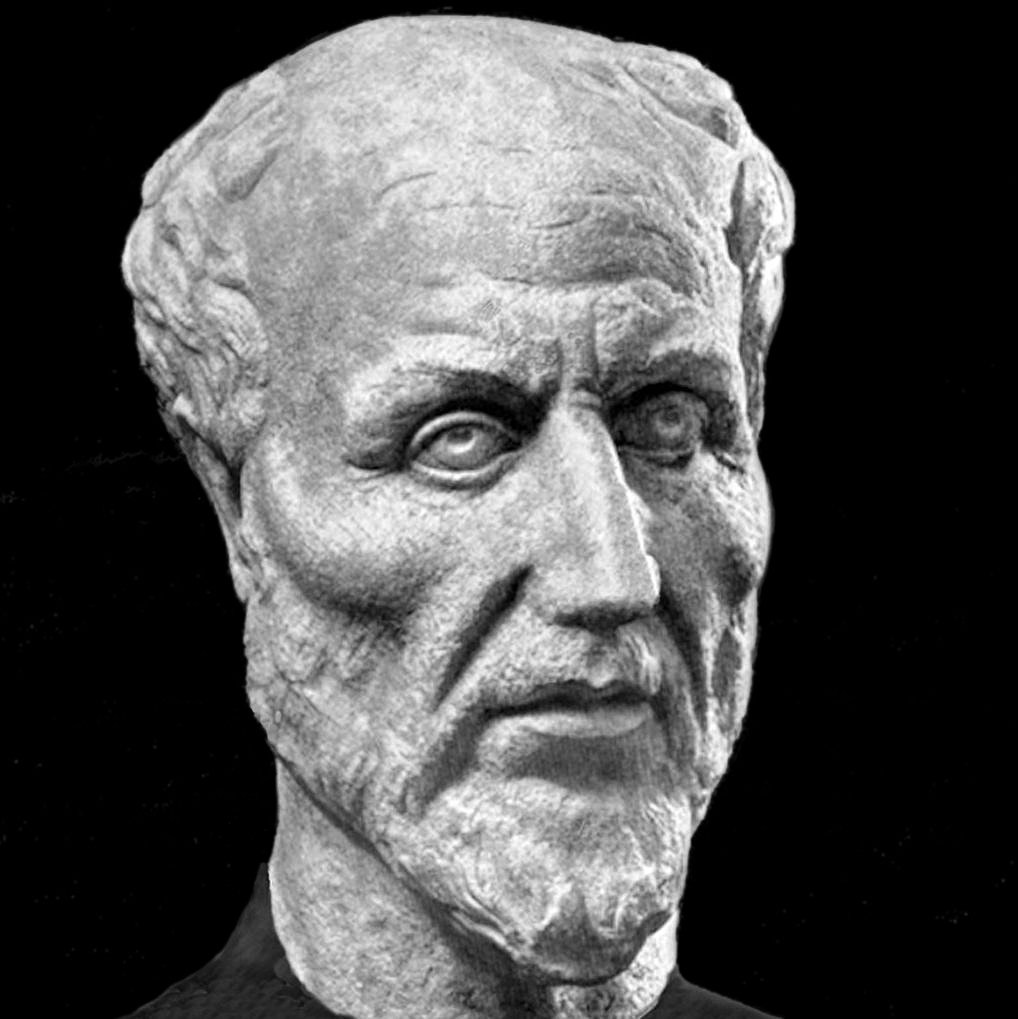Lessons from History: Plotinus
The name Plotinus (204/5 – 270 C.E.) is not as widely known as other ancient figures, like Plato and Aristotle. But Plotinus is likely the most famous neoplatonic philosopher; that is, he was a disciple of the philosophy of Plato. While aesthetics was not his primary focus, Plotinus devoted some space to argue for his particular notion of beauty.
Apparently, it had become a common idea to associate beauty with proportion exclusively, or at least this was a concern for Plotinus that proportion had become too important for beauty. So, Plotinus argued that beauty could not depend on proportion alone, even if proportion is sometimes what makes an object beautiful. The main reason, according to Plotinus, is that proportion requires that something is complex. In other words, simple things, like the color blue, could not be beautiful, if beauty depends on proportion.
To explain this further, Plotinus argues that complex things are composed of simple things. While his knowledge of the world was more limited than ours, we can still follow his logic. He claimed that if a symmetrical object was beautiful, then the two halves that comprise it must, of necessity, be beautiful as well. So, beauty could not be based on symmetry or proportion alone. For another example, suppose something was composed entirely of atoms or cells that are ugly (or at least not beautiful). Then, Plotinus argues that since the simple parts are not (or cannot) be beautiful, then the whole they comprise could also not be beautiful. In other words, for an object to be beautiful, all of its parts must also be beautiful. He didn’t think you could derive a beautiful object from ugly parts.
This argument may seem strange to us today, since we likely do not adopt his metaphysics—that is, his view of the nature of reality. But we could imagine several analogies. Imagine an album that was just released by a band. What if each song on the album was completely terrible? Could the album be beautiful as a whole? This seems highly unlikely. How about a movie where every scene is poorly written, acted, and directed? Could the movie as a whole be beautiful? Again, it seems extremely unlikely.
The message from Plotinus, at its core, is that the parts matter. And we can apply this idea to practical contexts. I’ve discussed the question—Is Your Business Beautiful?—on several occasions. Regardless of all the implications of this question, it seems clear that if a given business is full of disorderly systems, poor communication, and oppressive spaces, then it is less likely to be perceived as beautiful.
Following Plato, Plotinus recognizes a hierarchy of beautiful objects. Physical objects being the lowest, but they help us ascend to the higher levels. While many philosophers might not think Plotinus’s view is the truth, I find myself wondering whether there is a kernel of truth to it. If we experience more physical beauty in our surroundings, do we become more attune to other kinds of beauty, like moral or intellectual? There may not be a way to measure this with precision, but we could argue that our habits create opportunities.
On one hand, someone might say that if you constantly found yourself in spaces wholly devoid of beauty, then upon seeing a beautiful object, you would become instantly mesmerized. This is probably true, but it seems to suggest that we crave beauty, rather than we understand beauty only after experiencing extreme ugliness. I suggest instead that the greater variety of beauty that we observe, the more likely we are to find beauty in more places, especially ones we would have previously ignored.
As a simple example, have you ever bought a car, and then you, suddenly, notice that brand and model everywhere? Or have you ever tried to become more intentional about observing the flowers on your daily walk that you begin to notice even more flowers (and others plants and insects) than you would have noticed previously. Creating a habit of noticing beauty helps us to notice more beauty. And we need to be intentional about creating these kinds of habits. Thus, beauty in small things and cultivating habits of recognizing beauty are both important aspects of creating a beautiful life of experiencing as much beauty as possible.
What I’ve been up to.
Here’s my latest article for BeautyMatter: Uniformity Amidst Variety: A Guiding Principle.
I’m an invited speaker for a lunchtime session at the inaugural Intentional Spaces Summit in Washington D.C., November 9-10, 2023.
I started work on a small book project that addresses the question: Is Your Business Beautiful?
To invite me to write for or speak to your group or organization, please email me at michaelrspicher@gmail.com
Recent ARL Articles
From Cosmetology to Philosophy



I made a mind map on Plotinus' Philosophy that you might find interesting
https://www.theagora.space/library/mindmap/3